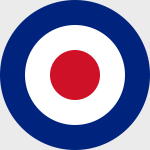Corgi AA38106 Royal Flying Corps Sopwith Camel Fighter - 8239D, Capt Clifford MacKay McEwen, No.28 Squadron, Italy, January 1919 (1:48 Scale)
"When you march into France, let the last man on the right brush the Channel with his sleeve."
General Alfred von Schlieffen, referring to the Schlieffen Plan just prior to his death in 1913
 The Sopwith Camel Scout is a British First World War single-seat fighter aircraft that was famous for its maneuverability. Intended as a replacement for the Sopwith Pup, the Camel prototype first flew in December 1916, powered by a 110 hp Clerget 9Z. Known as the "Big Pup" early on in its development, the aircraft was armed with two .303 in (7.7 mm) Vickers machine guns mounted in the cowl, firing forward through the propeller disc. A fairing surrounding the gun installation created a hump that led to the name Camel. The top wing was flat - but the bottom wing had dihedral, so that the gap between the wings was less at the tips than at the roots.
The Sopwith Camel Scout is a British First World War single-seat fighter aircraft that was famous for its maneuverability. Intended as a replacement for the Sopwith Pup, the Camel prototype first flew in December 1916, powered by a 110 hp Clerget 9Z. Known as the "Big Pup" early on in its development, the aircraft was armed with two .303 in (7.7 mm) Vickers machine guns mounted in the cowl, firing forward through the propeller disc. A fairing surrounding the gun installation created a hump that led to the name Camel. The top wing was flat - but the bottom wing had dihedral, so that the gap between the wings was less at the tips than at the roots.
The type entered squadron service in June 1917 with No. 4 Squadron of the Royal Naval Air Service, near Dunkirk. The following month, it became operational with No. 70 Squadron of the Royal Flying Corps. By February 1918, 13 squadrons were fully equipped with the Camel. Approximately 5,500 were ultimately produced.
Pictured here is a 1:48 scale replica of a Royal Flying Corps Sopwith Camel fighter that was piloted by Capt. Donald Roderick MacLaren and attached to No.28 Squadron, then deployed to Italy during January 1919.
Sold Out!
Dimensions:
Length: 5-1/4-inches
Wingspan: 6-3/4-inches
Release Date: July 2011
Historical Account: "Black Mike" - No.28 Squadron was formed at Gosport on November 7th, 1915. For eighteen months it was a training unit before moving to Yatesbury in July 1917 where it was re-equipped with Sopwith Camels before moving to France in October. The Squadron had barely settled when it was moved to Italy, along with the British Expeditionary Force. 28 Squadron remained in Italy until February 1919 before returning home to be disbanded on January 20th, 1920.
Clifford MacKay McEwen joined the Canadian Army in 1916. By April 1917 he was seconded to the RFC, becoming a member of 28 Squadron. He served in Italy as a Sopwith Camel pilot, scoring twenty-seven victories, four of which are believed to have been whilst flying 8239D. In 1919; McEwen; otherwise known as 'Black Mike;' returned to Canada where he served as an instructor with the RCAF. During World War Two, he commanded two bomber group bases, assuming command of 6 Bomber Group in England in 1944. He attained the rank of Air Vice-Marshal and later retired in 1946.


